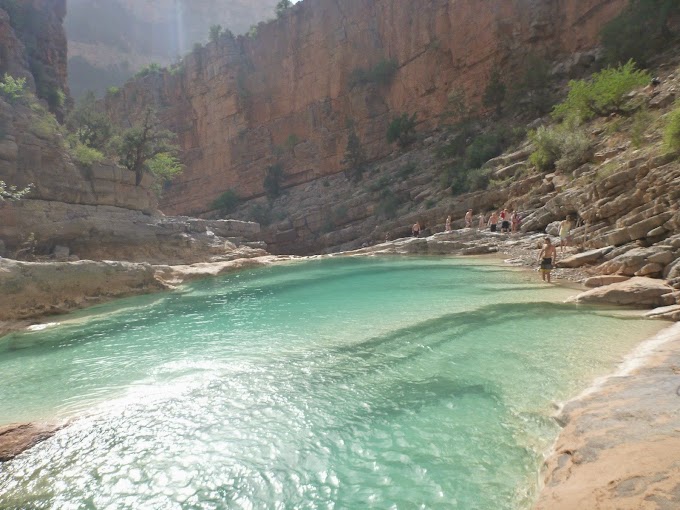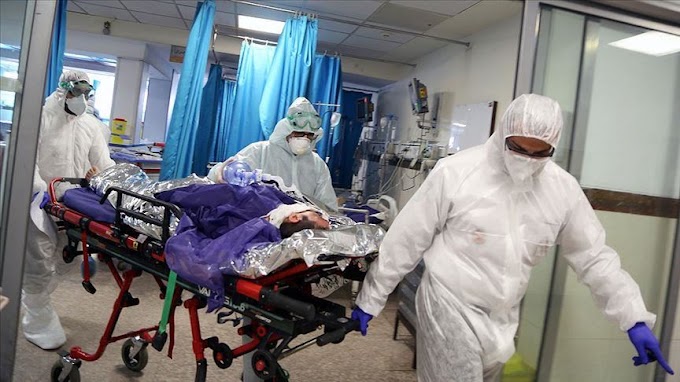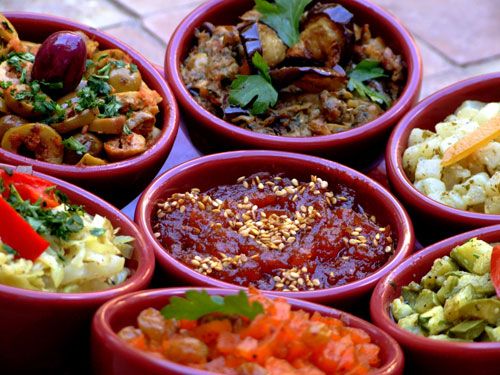Ramadan Traditions in Morocco

The Islamic month of fasting, involves abstaining from food and drink, sexual relations, smoking and other... between sunrise and sunset. Its conclusion is marked by Eid Al-Fitr, one of the two major Islamic holidays.
Although the focus of Ramadan is spiritual by making extra prayers and giving charity – many cultures place a surprising emphasis on food during this holy month.
Iftar, the meal at which Muslims break their fast, is highly anticipated, even children who aren’t fasting look forward to fast.
Iftar Table

In Morocco iftar is called ftour, same word used for breakfast. juices, Dates, milk and sweets typically provide the sugar surge needed after a day of going without food. Harira, a lentil and tomato soup, restores energy and satisfies hunger. boiled eggs, sweet filled pastries, fried fish, and various pancakes and flatbreads.
Large batches of sweets such as sellou and chebekia are traditionally prepared in advance for use throughout the month, as are cookies and other pastries. These, and other specialties found in the list of Ramadan Recipes can be made all year round, but they are especially popular during this holy month.
Moroccan Foods, Ingredients and lists suggestions of ftour items that you can Prepare saved well before the month of Ramadan.
Other religious and cultural traditions associated with Ramadan in Morocco:
- A sound of a cannon or the blowing of a horn by a nafar (a town crier) to awaken families in time to take a pre-dawn meal before the day of fasting begins. Another canon, accompanied by the call to prayer (adhan) for the dawn prayer alerts those fasting that no more food or drink may be taken until sunset.
-The blasting of a cannon or the sounding of an air raid siren (zowaka) to alert those fasting that the sunset prayer time has arrived and that they may now eat and drink.
-Many Muslims attend extra congregational prayers during Ramadan, including taraweh, which follows the obligatory dusk or night prayer, and tahajjud, which takes place in the early morning hours when people are normally sleeping.
-The 27th night of Ramadan is traditionally singled out as being the most likely date for Laylat al-Qadr, the most important night in Ramadan, and accordingly many Moroccans serve traditional dinners, hold family gatherings and attend tahajjud on this night.
-In anticipation of their increased attendance of prayers, many Moroccans have the annual habit of buying or making new traditional cloaks, or djellabas in time for Ramadan.
-Although reading and memorizing of the Qur'an is a year-round effort by many Muslims, Ramadan is a time when extra effort is made and many Muslims strive to read the entire Qur'an at least once during Ramadan.
By Magic Morocco Travel








0 Commentaires